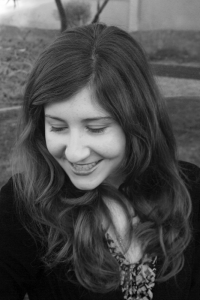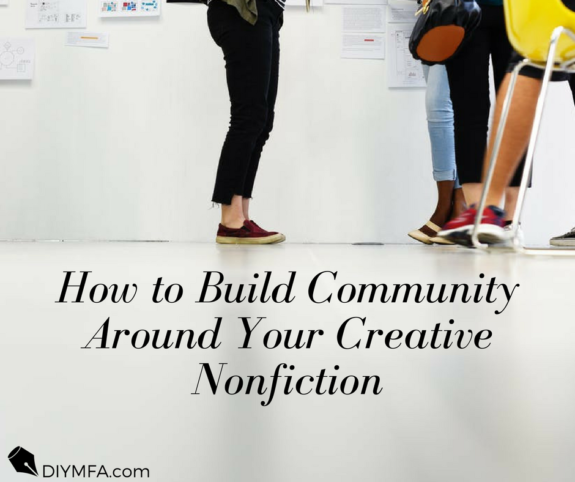While blogging is a prominent web genre, it’s not one that’s known for its standardization. Or so beginning writers seem to think. That’s primarily because writing in different situations takes on its own unique forms and conventions. While there are lots of people selling products and services on their blogs, not all bloggers have this direct aim in mind. It could be that you (like me) are a writer who wants to sell their writing first.
Why does this relate to creative nonfiction? Because blogging (and, by extension, building a community) can be a starting point for those who want to enter the dazzling realm of nonfiction narrative. That can take different forms. Perhaps you want to write for literary magazines. Or maybe you want to take a go at pitching and writing for the web with editorial flair.
Either way, gathering a community around your writing could give you the chance to write for bigger audiences and teach others what you learned. So what’s a writer with a desire to write nonfiction to do?
Understand the Goal For Your Writing
Some publications want pitches, while other publications look for completed pieces written on spec. You’ll want to get an idea of the types of places you’d like to submit. Do they want short pieces under 700 words? Long narratives that take up 20-30 pages? And what are you compelled to write at this stage in your career? If you’re early on in your foray into creative nonfiction, short-form may be a safe bet for improving your practice.
When writing for your blog, it can also be helpful to think of yourself as a publication. What posts would make their home on your blog? What pieces would not work well with your style?
Keeping these ideas in mind may help you consider where and how you will share your work on social media. Also, it can help you consider what publications you want to write for in the future. Ask yourself: what do you want to be known for as a writer? Start gathering the names of publications that interest you and read them regularly. Reading often can have a positive influence on your writing and reveal underlying structures.
Structure Your Narrative for a Reader
The problem with a lot of nonfiction is that it doesn’t turn the focus away from the individual. There are plenty of writers who write personal pieces that don’t feel like creative nonfiction because they don’t turn the focus towards the wider world where the audience lives. Feel free to share your experiences, but don’t make the essay solely about yourself. Balance those personal aspects with bigger applications. This doesn’t necessarily have to take the form of advice. Many nonfiction pieces lack of resolution. Essays can meander or ask something of you that requires contemplation.
But what’s a rule of thumb you can always rely on? Write a compelling first-sentence even if it’s the very last thing you add to your final piece. And form is your friend. (It should go without saying that the 5-paragraph essay is not a desirable trope in the nonfiction genre!)
It may be helpful to bring in other experts, quotations, and references to make your work grounded in specificity. In my last post, I talked about how much research you need in a creative nonfiction essay.
Discovering where a reader fits into your piece can have wide-ranging applications. Although you may already share your writing on social or on a newsletter, the title and content can influence whether people will read it or not. Having doubts about what your audience will read? Try to vary the titles on your blog. Some can be how-to posts, but others can be pure narrative. The combination of both can often be enough to draw readers in to both your advice and your narrative.
Know When To Pitch Elsewhere
Although your blog is a wonderful place to share your writing, get out in the writing world by pitching your work. That starts with determining what types of essays you want to write and the themes that compel you.
It may take awhile to discover these themes, but those are often key to garnering interest in your work. Don’t worry so much about niche; worry more about the overarching aspects of your work that connect each article together.
 Kayla Dean is an arts and entertainment writer in Las Vegas, where she has interviewed several celebrities for publications like Vegas Seven. She has several YA stories in the works and blogs about writing and creativity on her personal website, where she also hosts the Millennial Writer Series. She received her BA in English from the University of Nevada, Las Vegas and will pursue her Master’s in English Literature this fall. You can find her on Twitter@kayladeanwrites.
Kayla Dean is an arts and entertainment writer in Las Vegas, where she has interviewed several celebrities for publications like Vegas Seven. She has several YA stories in the works and blogs about writing and creativity on her personal website, where she also hosts the Millennial Writer Series. She received her BA in English from the University of Nevada, Las Vegas and will pursue her Master’s in English Literature this fall. You can find her on Twitter@kayladeanwrites.







